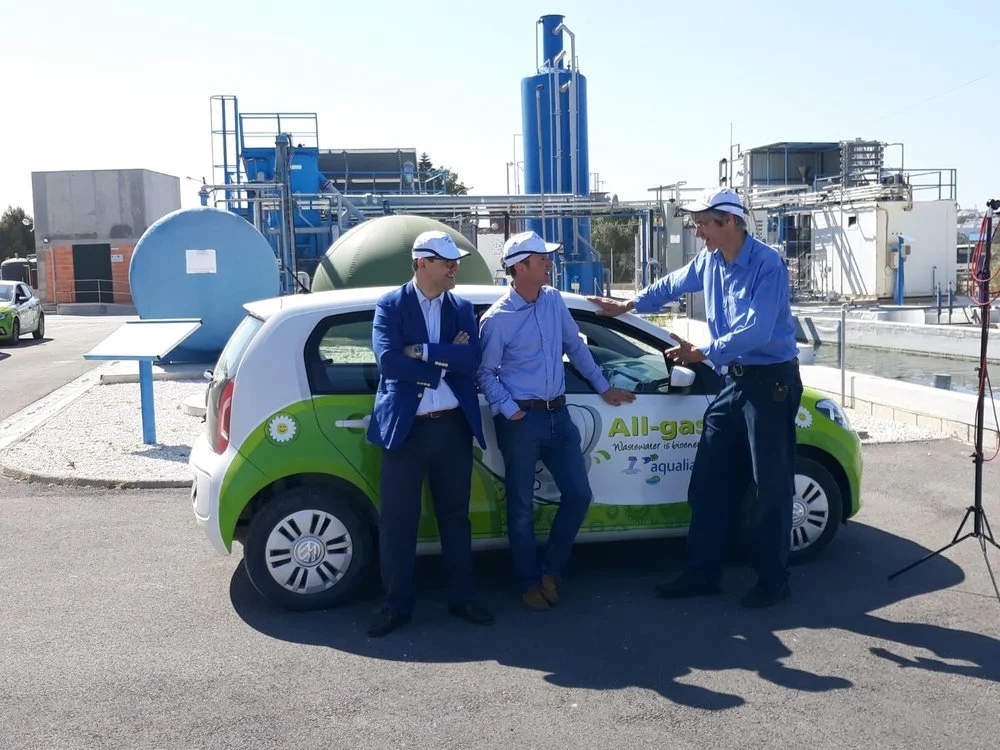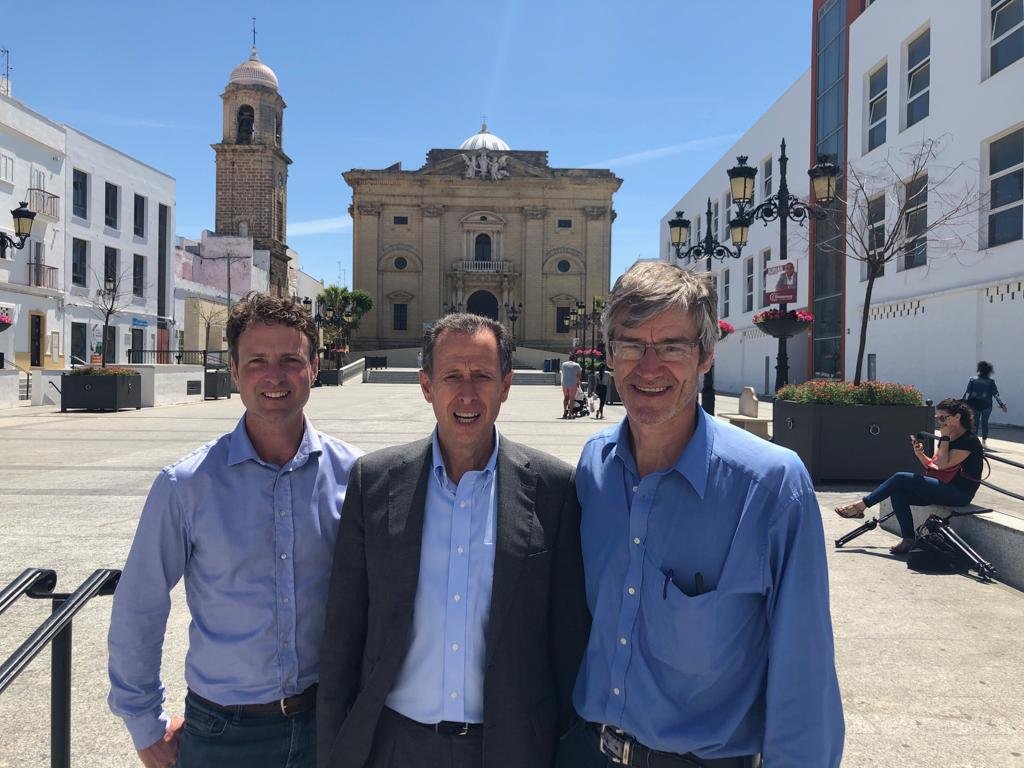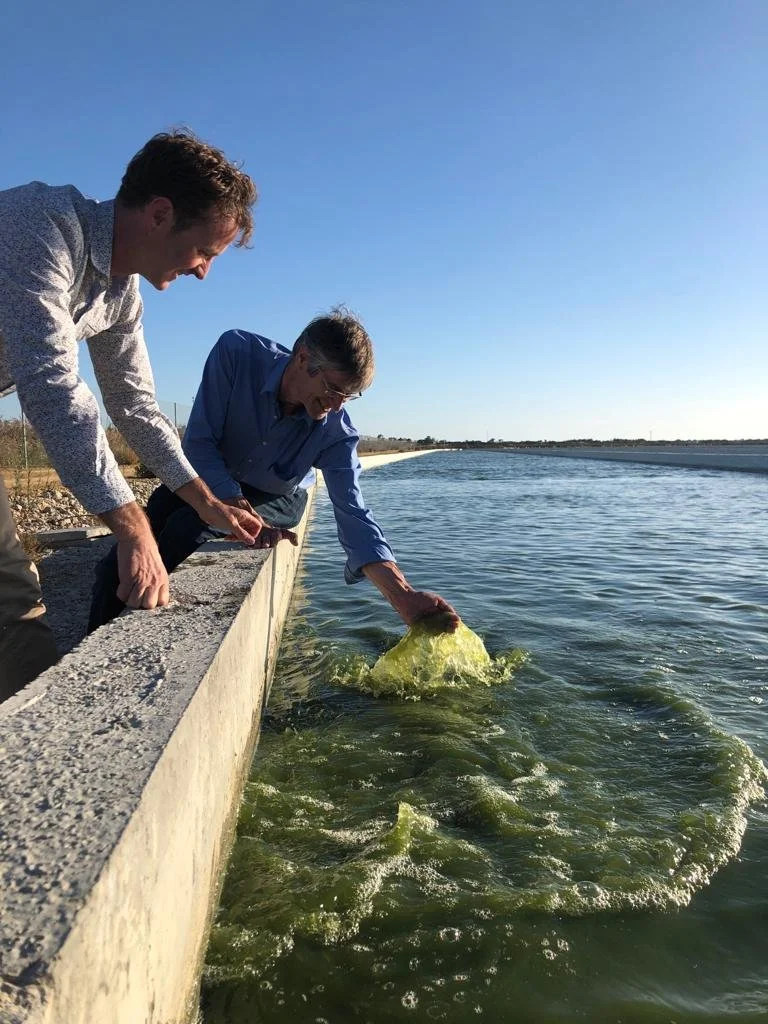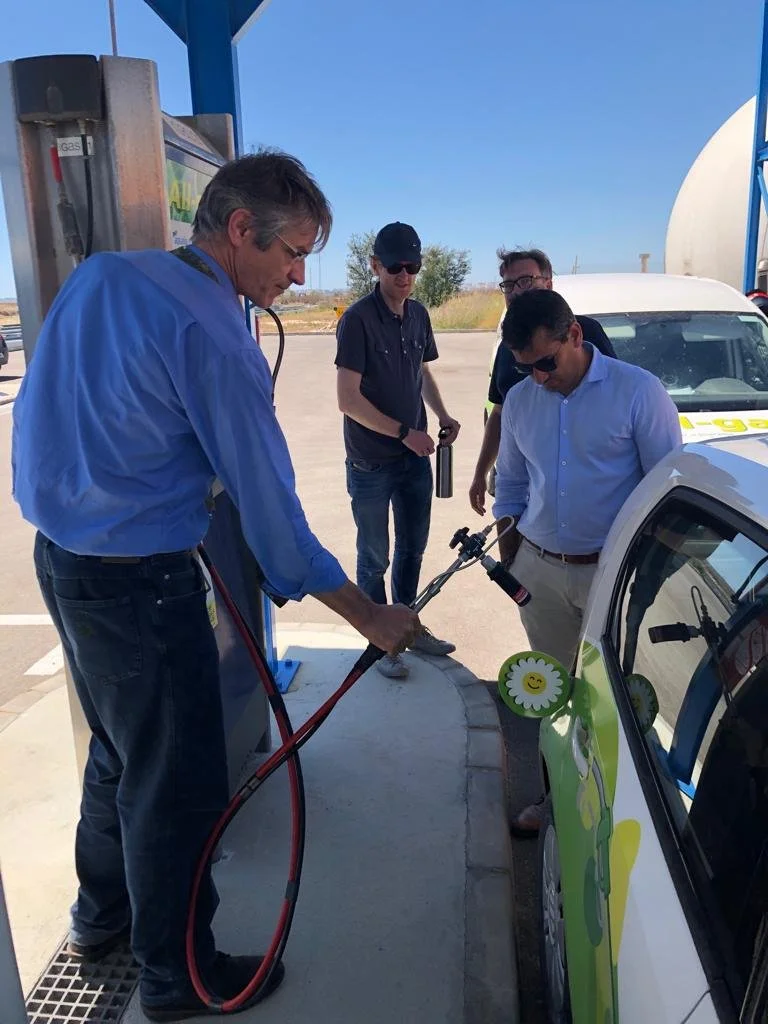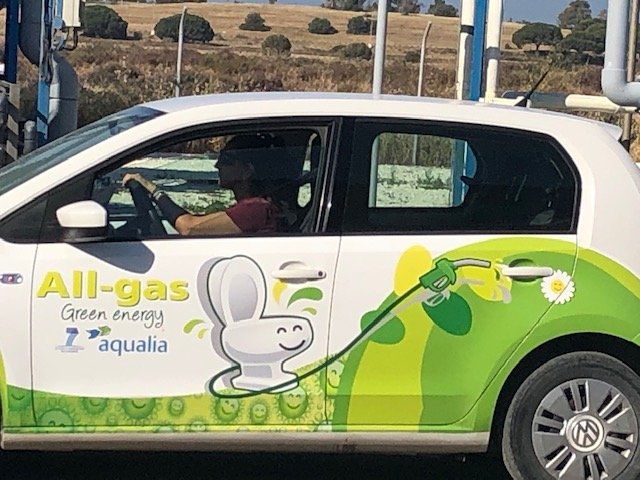Visiting the algae all-stars in Spain
All-Gas EU Project, City of Chiclana, Cadiz, Andalucia in Spain
As part of the Brave Blue World journey to discover the future of water, I recently visited Andalucia in Spain to check out the All-Gas EU project in the city of Chiclana developed by Spanish engineering company, Aqualia.
This is the world's largest algal driven wastewater treatment system and the first that produces bio-methane for use directly in cars. Instead of ‘toilet to tap’, this type of solution is referred to as 'toilet to tank’. There are even examples in Japan where they produce fuel for the hydrogen super-highway from sewage sludge.
ALGAE SYMBIOSIS
The All-Gas project has proven that you can combine algae with bacteria in a perfect symbiosis. Algae provides the oxygen for the bacteria and the bacteria provide the carbon for the algae; together they are converted into a biogas to become a fuel for cars.
As Frank Rogalla, director of innovation and technology at Aqualia explained, a simple way to think of this, is like a football game. Imagine an area the size of a football pitch: the wastewater from 5,000 spectators alone would provide enough bio-methane to fuel the 20 players’ drive home. Furthermore, the wastewater from the spectators is treated with zero energy.
This is significant because at a European level, it takes the energy equivalent of two nuclear power plants to clean the water from 500 million people. Let’s extrapolate this further: think about how much energy it would take the clean the wastewater to meet Sustainable Development Goal 6 for the five billion people who need improved sanitation. It’s enormous. This has the potential to create a negative impact on climate change due to increased carbon emissions.
NO SILVER BULLET
All-Gas, and similar projects, go from energy negative to the tune of a half a kilowatt hour per cubic meter (0.5 kilowatt hour (kWh) per cubic metre (m3), to energy positive and 2kWh/m3. As a result, this reduces operational costs as well carbon emissions, generates energy and of course, wastewater is treated along the way, thereby protecting the environment.
Currently to do this, you need about two square metres to treat the wastewater from one person. This may not sound like a lot yet it’s 10 times more land area than you would need for conventional wastewater treatment.
Frank Rogalla puts this into context: if you converted an area half the size of Belgium into an All-Gas process, you could drive the cars for the 30 million people in Spain. This is not a silver bullet solution that will work everywhere but in arid areas where there is ample sunshine, and non-productive land available, it certainly has potential.
This is the first full-scale test facility and was built with considerable safety margins. They will no doubt chip away at the footprint required over time and reduce this further.
MAYORAL ALGAE SUPPORT
Ironically, one of the most challenging aspects of the project was the permitting. Questions were raised on the definition of the project: was it a wastewater treatment plant, or was it a biofuels production or aquaculture? This was the first time such a project had to be approved. Along with the success and results of the project, regulations and approvals also need to evolve to allow for innovation.
For the City of Chiclana, it was a way of allowing the city to expand and treat the wastewater for its tourist visitors in a sustainable way.
We also bumped into the Mayor of Chiclana while driving through the city in the algal powered cars. He has been a huge enthusiast for the project – it’s fantastic to have support like this in local government. This shows that you need political will and open minds, every bit as much as we need the science and technology if we are to turn solutions like this into a reality.
Paul O’Callaghan, CEO, BlueTech Research, Mayor of Chiclana, and Frank Rogalla, Director of Innovation and Technology, Aqualia, Spain
Paul O’Callaghan, CEO, BlueTech Research, and Frank Rogalla, Director of Innovation and Technology, Aqualia, Spain
Frank Rogalla, Director of Innovation and Technology, Aqualia, fuelling up the All-GAS EU Project car , Spain
All-Gas EU Project, Spain
All-Gas Energy Car, Spain

